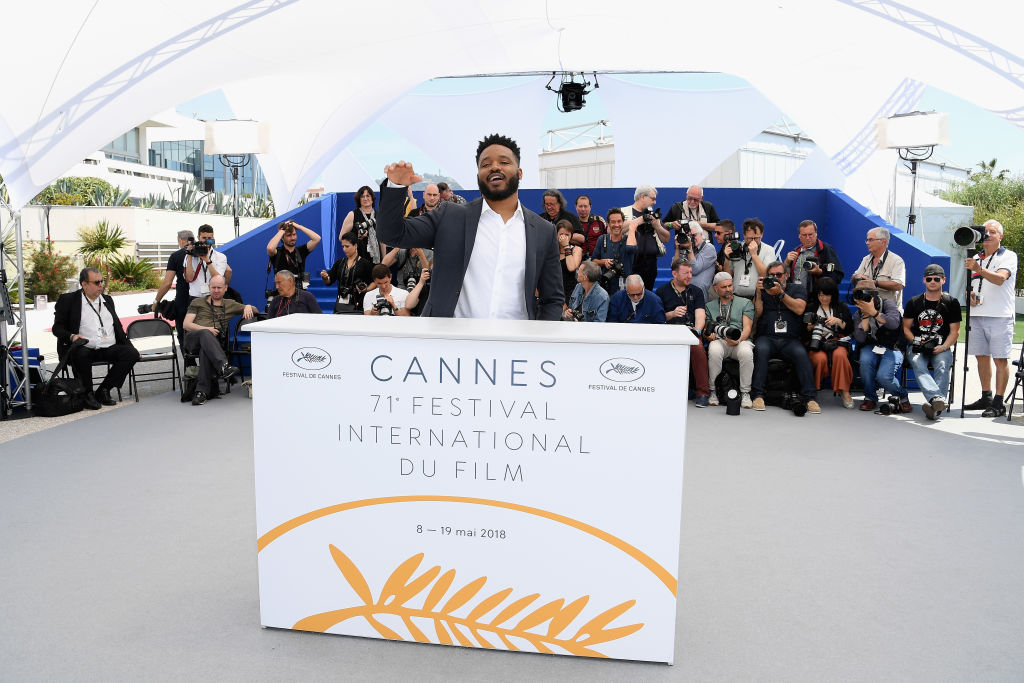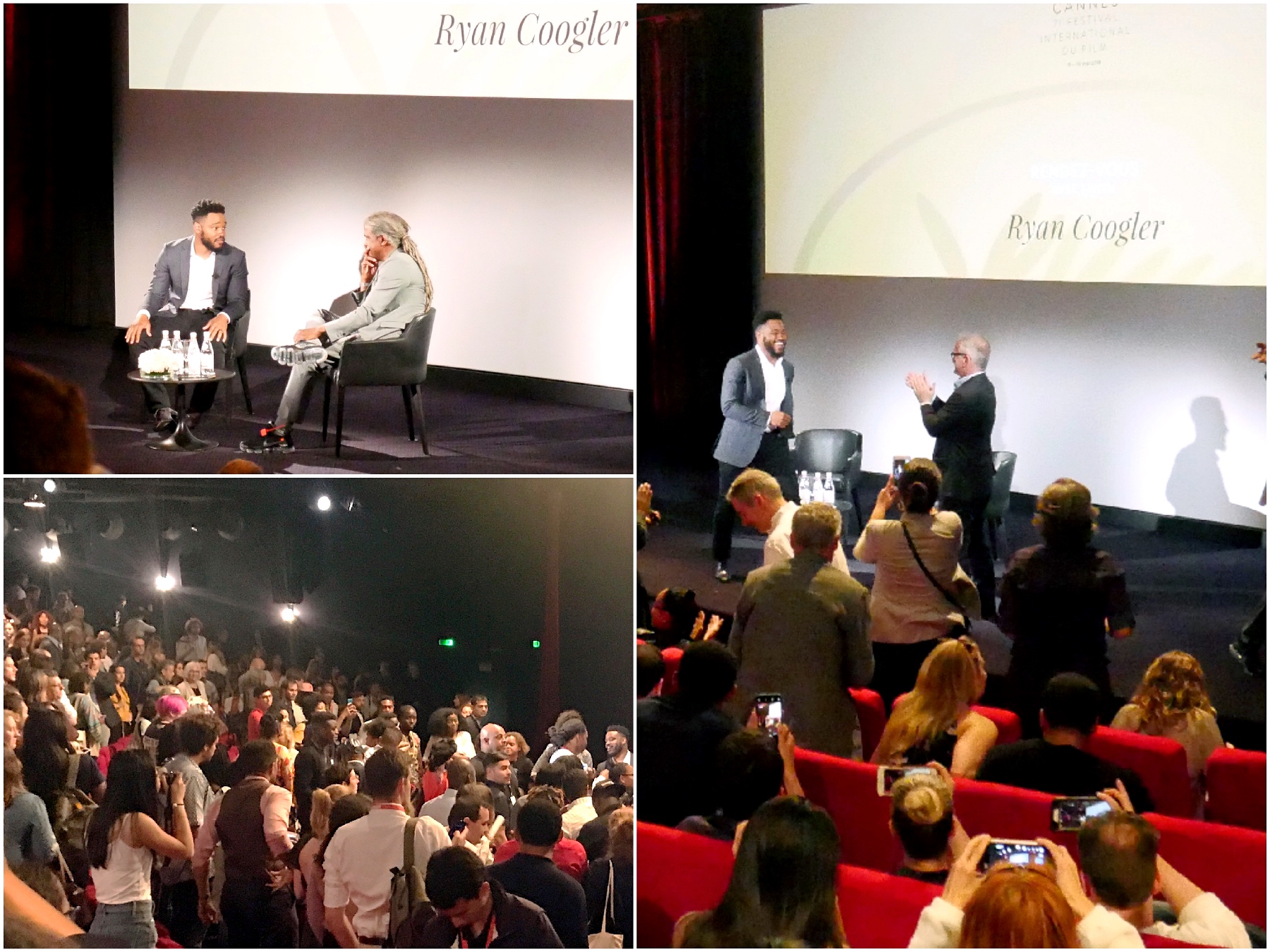
- Festivals
Ryan Coogler Holds Cannes Master Class, Talks Panther “Female” Sequel
There are four master classes on the Cannes schedule this year, including talks by film icons John Travolta, Christopher Nolan and Gary Oldman. To start, Ryan Coogler kicked things off with an intimate, free-flowing and wide-ranging two-hour conversation with Elvis Mitchell in front of a packed Salle Buñuel. The audience was mostly young, enthusiastic and included many “Africans” – the word often used by Coogler during the evening to designate those descended from colonized and/or enslaved peoples: the black diaspora connected – whichever the current country of residence – by a shared legacy of oppression and injustice.
Mitchell and the director of Fruitvale Station, Creed and most recently of a little movie called Black Panther (which showed here on the big Plage screen on the beach), discussed the special meaning that film, and its imagination of an uncolonized African nation, holds for black audiences (with Mitchell calling it the “defining event of the 21st century”, from an African American film perspective). And frequent applause and shouts of approval from the many French-Africans in the audience confirmed that fact.
When Coogler recently spoke to the HFPA about his film he told us: “One of the things that I thought about for this film was what does it mean to be African, you know (…) It is a film that deals with identity, it deals with the concept of tradition. What does it mean? And I think that’s a question that anybody could ask themselves even with their own heritage. This is a question anybody could take on. You know what does it mean to be Chinese, you know what I mean. What does it mean to be German, and what does it mean to be from the Philippines, what effect does that have on me as a person, and what effect does that have on me in terms of where I’m going and how the world views.” The sentiment was echoed on that occasion by Lupita Nyong’o: “What would progress look like on the African continent if the people were allowed to self-determine? That is the big question that this film offers and it gives us a big glimpse into what that could look like. And so it’s really exciting. For me, as an African woman.”

Scenes from a master class: Ryan Coogler with Elvis Mitchell and introduced by Thierry Fremaux, speaking to a Salle Buñuel filled to capacity.
luca celada/hfpa
In Cannes the 31-year-old director from Oakland, California, used a sports metaphor to ponder the future of Black-led films, recalling how owners were initially wary of signing black players to an all-white NBA: “Would people come to the games? There was a time when there were no black people in the NBA; people thought people would not come to the games. I was born in ’86; I turn on the TV and think everybody in the NBA is black. That’s the world I grew up in. For me, why can’t film have more black movies? People said, ‘Maybe these films won’t travel.’ We don’t know if that’s the case. It was great to have partners in Marvel and Disney who were excited as well. We didn’t feel like we are the only ones banging the drum.”
Now that the drum roll has gone truly global and Panther recently became the third-highest grossing film of all time, talk inevitably turned to a potential sequel with Mitchell wishing Coogler he would get that chance and the director indicating that a sequel could showcase the women of the story, even more, indicating that the film’s female stars could ‘easily carry their own movie’ and would reflect the reality of African societies in which women often play a more pre-eminent role than the men. A line which received the loudest applause of the night.